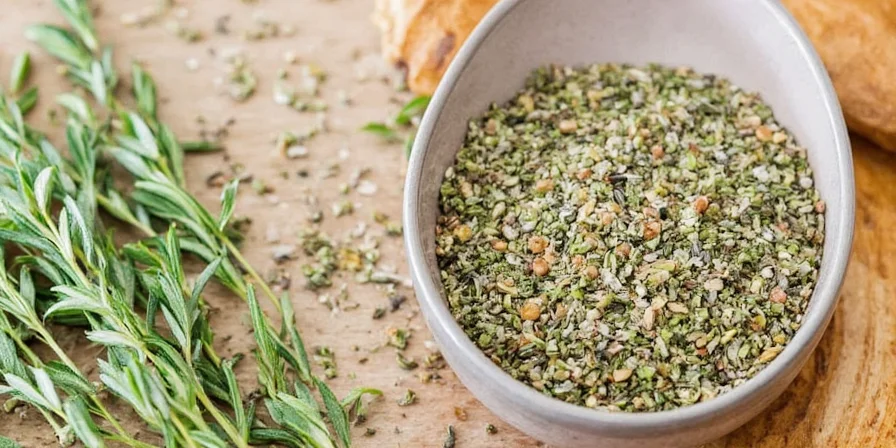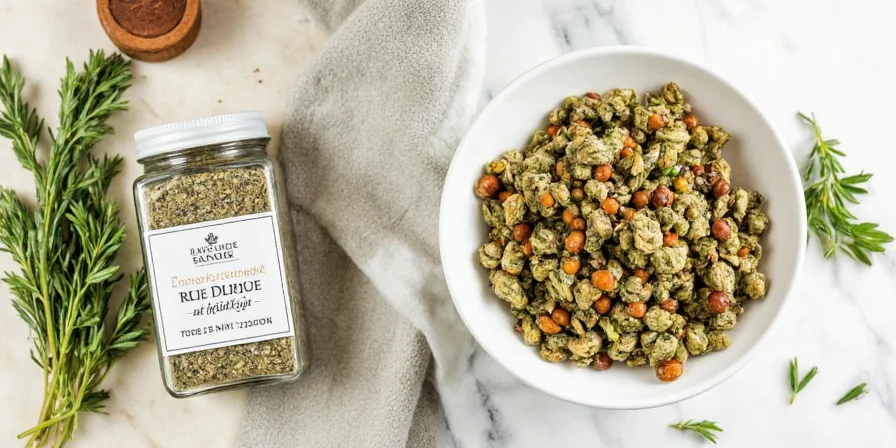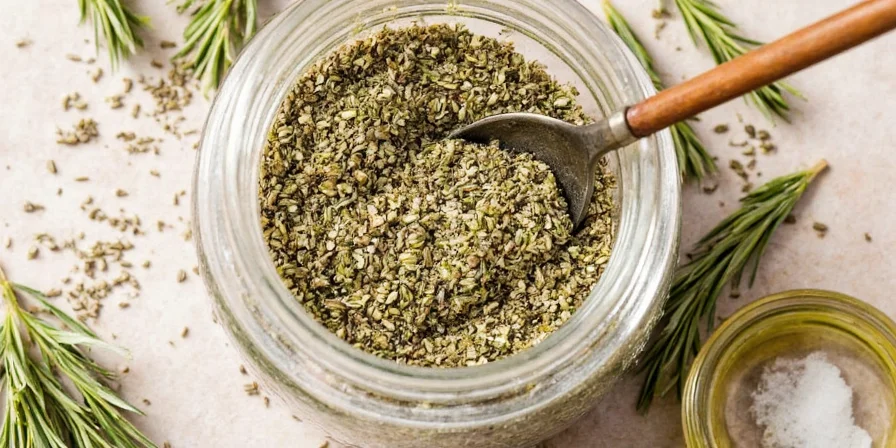7 Surprisingly Delicious Uses for Herbes de Provence (You’re Probably Missing Out)
A Flavorful Detour Through Southern France
If you’ve ever dreamed of a sun-drenched lavender field in Provence, chances are you've also dreamed of its flavors. But here’s the thing — herbes de provence isn’t just a French pantry staple; it's a versatile flavor bomb waiting to be unleashed in your everyday cooking.
What Even Is Herbes de Provence?
Let’s start with the basics: herbes de provence is a traditional blend of dried herbs native to the Provence region of southern France. While recipes vary by brand and chef preference, most mixes include:
- Lavender (yes, really!)
- Thyme
- Rosemary
- Oregano
- Marjoram
- Savory or sage (optional additions)
Photo: Classic herbes de provence in a rustic kitchen setting.
Why It Deserves More Than Just Roasted Chicken
While we all love it sprinkled on roasted poultry, this aromatic mix has so much more potential. Let’s break the mold and explore some creative — and surprisingly tasty — ways to use it.
1. Sprinkle Over Popcorn (Yes, Really)
Fancy a movie night snack that’s actually gourmet? Toss freshly popped popcorn with melted butter and a generous sprinkle of herbes de provence.
- Taste profile: Herbal, floral, slightly savory
- Pairing tip: Add grated Parmesan for an umami boost
2. Boost Your Bread Game
Mix into homemade focaccia, bread dough, or even store-bought pizza crust for a burst of Mediterranean charm.
- Proportion: 1–2 tsp per cup of flour
- Bonus: Brush olive oil over dough before baking and sprinkle more herbs on top

Photo: Freshly baked focaccia with herbes de provence glistening on top.
3. Elevate Your Eggs Benedict
Whisk a pinch into hollandaise sauce for brunch like you’ve never had before. The floral notes cut through the richness perfectly.
- Tip: Sift the herbs first to avoid chunks
- Pair with: Lemon zest for brightness
4. Infuse Oils and Vinegars
Create your own flavored oils by steeping herbes de provence in warm olive oil or balsamic vinegar.
| Oil Type | Infusion Time | Best Use |
|---|---|---|
| EVOO | 2 weeks | Salad dressings, drizzle over bruschetta |
| Truffle Oil | 1 week | Finishing pasta or mashed potatoes |
| Balsamic Vinegar | 3–4 weeks | Glam up summer salads or strawberries |
5. Spice Up Sweet Treats (No, Really!)
This might sound wild, but lavender and thyme work beautifully in desserts like shortbread cookies, lemon cakes, and panna cotta.
- Warning: Only use blends with minimal woody herbs (rosemary/savory)
- Try: A herbes de provence crème brûlée — yes, it’s divine
Photo: Lavender-scented shortbread made with herbes de provence.
6. Make Your Own Custom Blend
Not all pre-made versions are created equal. Create your own signature herbes de provence using this simple base recipe:
- 2 tbsp dried thyme
- 1 tbsp dried rosemary
- 1 tbsp dried marjoram
- 1 tbsp dried oregano
- ½ tbsp lavender buds
- Optional: ½ tbsp sage or savory
Mix well and store in an airtight container.

Photo: Hand-mixed herbes de provence ready for bottling.
7. Rub It Onto Vegetables Before Grilling
Corn on the cob, eggplant, zucchini, or portobello mushrooms all take well to a herby rub. Toss with olive oil and roast or grill until tender.
- Pro tip: Mix with breadcrumbs for extra texture
- Serve with: Goat cheese dip or tahini sauce

Photo: Colorful grilled veggies with herbes de provence rubbed in.
Common Mistakes to Avoid When Using Herbes de Provence
Even seasoned cooks can fall into these traps:
- Overdoing the lavender: Too much can taste soapy or medicinal.
- Using too late in the cooking process: Add early enough for flavors to bloom.
- Assuming all blends are equal: Read labels — some brands load up on filler ingredients.
The Secret Behind Its Enduring Popularity
Herbes de provence works because it captures the essence of Provençal cuisine — simplicity, freshness, and balance. Whether used subtly or boldly, it brings a sense of place to every dish.
Final Thoughts: Why Every Kitchen Should Have a Jar
In a world full of complicated spice trends, herbes de provence remains timeless. From savory mains to sweet surprises, it’s one of those underappreciated heroes of the spice rack that deserves way more attention than it gets.
Summary Table: Herbes de Provence Quick Reference Guide
| Use Case | Recommended Amount | Best Pairings |
|---|---|---|
| Popcorn | ½ tsp per 4 cups | Butter, Parmesan |
| Bread & Pizza Dough | 1–2 tsp per cup flour | Olive oil, garlic, sea salt |
| Hollandaise Sauce | ¼ tsp per serving | Lemon zest, black pepper |
| Desserts | Small pinch | Lemon, honey, vanilla |
| Veggie Rub | 1 tsp per 2 servings | Olive oil, lemon juice |
Conclusion
Next time you reach for that dusty jar of herbes de provence, think beyond the roast chicken. With these seven smart strategies, you’ll unlock a whole new world of flavor that’s both elegant and approachable. So go ahead — shake things up a little and let the scent of Provence bring a touch of Mediterranean magic to your meals!










 浙公网安备
33010002000092号
浙公网安备
33010002000092号 浙B2-20120091-4
浙B2-20120091-4